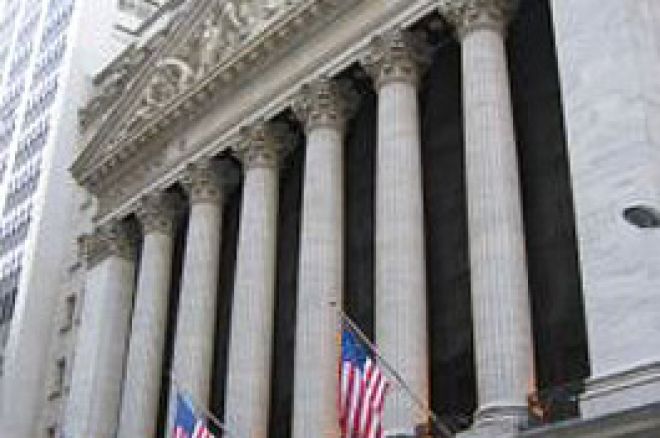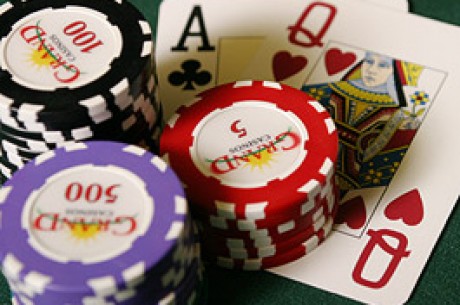US Investment in Poker Healthy

The U.S. economic position on Internet poker is changing but not with the government's approval. Although it is still considered by some to be illegal to participate in online poker in the U.S., some of the country's biggest financial organizations are acting otherwise.
Led by some of the most recognized financial institutions in the world, U.S. companies are trying to capitalize on the poker's explosive growth and the game's tremendous international success. Blue-chip investment firms like Goldman Sachs, Merrill Lynch, and Fidelity are banking on the success of the gaming industry and the monstrous profits being reaped by foreign sites and companies.
According to a recent article in The New York Times, the growing participation of U.S. investors further highlights the widening gap between the federal government's legal position on online gambling and the realities of just how big the game has become, both economically and socially. The companies' moves into this grey area also highlight the problems with policing international businesses and electronic global commerce.
Investment by these companies does not mean that the laws in the U.S. are about to change. According to the Wire Act of 1961, it is illegal for U.S. residents to place wagers over the phone. This law has also been applied to online gaming but since Internet companies are primarily offshore, U.S. residents have not been held accountable for breaking the law. Many individual states, however, are now taking action or have already taken action by going after banking institutions to prevent these kinds of transactions.
Instead of going after the individual player, some states have been successful by attacking the backer of many online players ? the financial institutions that provide the players' credit cards. One example of such an attack is the one by New York State Attorney General, Elliott Spitzer who successfully investigated the state's top banking institutions.
Spitzer's investigation of economic giants like Citibank, Bank of America, JPMorgan Chase & Co.,, and MBNA America Bank, and the threat of prosecution for credit card leaders Visa and Mastercard, helped Spitzer win a small battle in a growing war. The financial institutions and credit card companies are now voluntarily blocking transactions to gambling sites within the state. But New York is only one of several states to take these kinds of steps to prohibit online poker while others are looking closely at New York's success and failures.
Despite the efforts and legal declarations of federal and state governments, top investment firms are willing to risk crossing the fine line of the law to satisfy clients who have invested in the company's stocks and mutual funds.
"Our analysis shows the gains from these stocks outweighs the very small risk" of a owning them, said a spokesman for a major investment house who declined to be named, according to the Times.
The list of owners of major online casinos and poker rooms reads like a Who's Who of the top investment firms. According to public filings, tens of millions of shares of SportingBet are owned by Fidelity, Merrill Lynch and Goldman Sachs. Fidelity Management holds the most shares of SportingBet with $363 million in stock, or 14.1 percent of all available stock. Merrill Lynch is next with a $164 million stake in the company, while Goldman Sachs has $137 million invested.
Goldman Sachs and Morgan Stanley Securities hold large investments in BetOnSports, another major online player. Morgan Stanley owns the biggest stake, worth $25.6 million, but the company claims that the investment is on behalf of one major investor who it refused to disclose.
According to George Hudson, a spokesman for SportingBet, things have changed dramatically in this business sector from two years ago when "the big banks wouldn't touch the industry with a barge pole." Where are you getting these quotes and inforamation here and elsewhere? Credit the sources unless you did the interviews. Do unto others - and cover your ass.
Hudson claims that big industry changes occurred with PartyPoker's listing on the London Stock Exchange. The enormous amount of attention that the company's float drew, not to mention that it immediately became one of the Exchange's top 100 companies, further legitimized the online gaming business and created rising value for the industry's stocks.
Although the legal threat is real in the U.S., the bottom line is that the big boys of the financial world are willing to gamble to see whether or not their hands hold up against the law. According to Lawrence G. Walters, a Florida lawyer who specializes in investment law and who has consulted for some prospective U.S. buyers, "Nobody takes them (the government) seriously when they say this is a serious crime. But there is stuff still on the books, and somebody could go down heavily if the government decides to turn its attention to them."
But the money being made is almost impossible for the companies to turn down. According to Morgan Stanley's December 1, 2005, analysis of its SportingBet investment showed that the company was taking in close to $530,000 a day from this poker business alone. The company also claims that the huge growth in the industry is continuing, noting in the report that SportingBet has acquired 700,000 new customers in a recent quarter. This number is almost equal to the total number of people who signed up to SportingBet for all of last year.
Unless the U.S. government takes drastic action, there will be no shortage of financial institutions trying to capitalize on the industry's growth. "There is no other leisure business in the world with the same potential for growth and shareholder returns as online gaming," said David Caruthers, a chief executive of BetOnSports in a recent New York Times article.
Interestingly enough, it is the financial support of U.S. groups that has further legitimized the industry and has helped casinos grow. According to Caruthers, U.S. involvement has been key in the success of the gaming companies. "It says we're running a business legitimately and responsibility and we're seen as a worldwide leisure product-similar to KFC, Ford, Coca Cola, IBM or any other global brand."
Ed Note: Invest in yourself at the Poker table at Everest Poker








